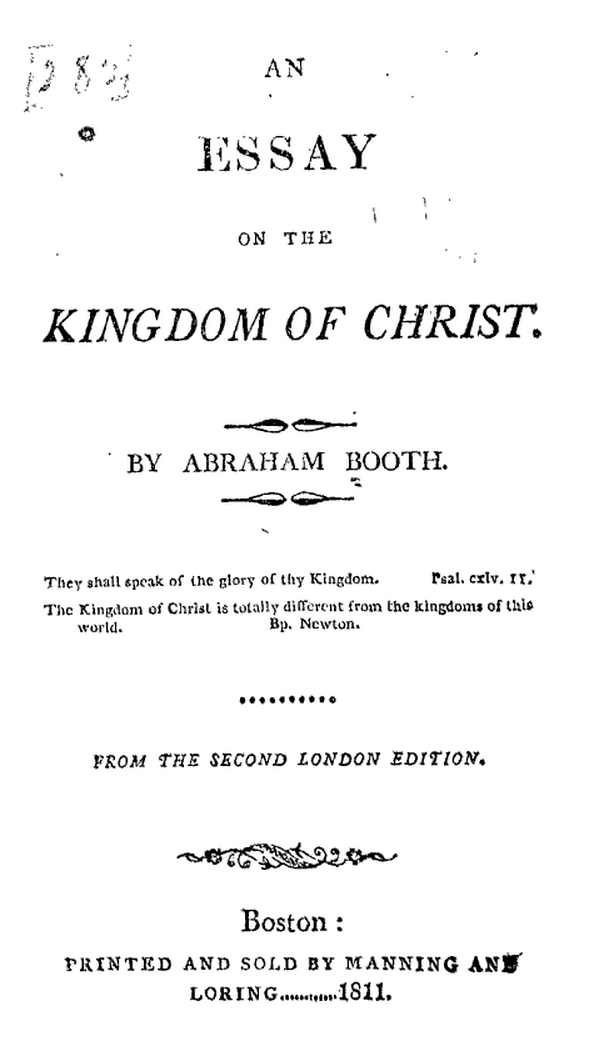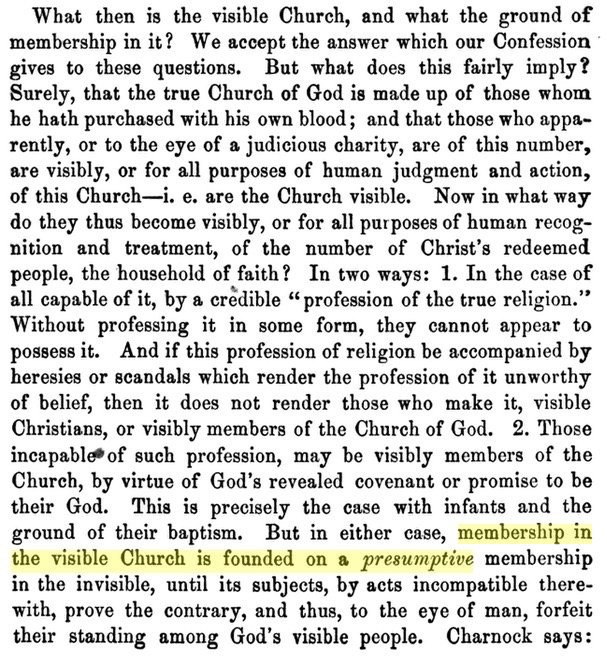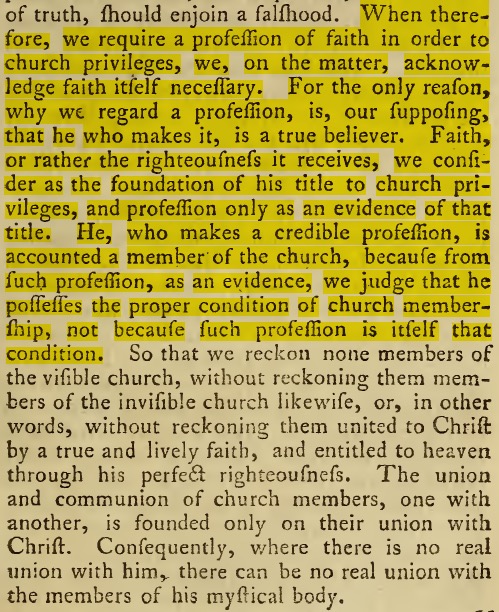Books
An Essay on the Kingdom of Christ (Abraham Booth)
Available on Amazon Kindle ($0.99), PDF, .ePub (free) and .mobi (free).
Also available in Portuguese (PDF).
Review by Dr. Michael A.G. Haykin
In his day, Abraham Booth (1734-1806) was one of the leading pastors of the English Calvinistic Baptist denomination. Once described by Andrew Fuller as “the first counsellor of our denomination,” he was always referred to by his contemporaries with deep respect. His chief claim to literary fame is probably his The Reign of Grace (1768). This essay, which has also been reprinted a number of times, was written some twenty years later, and is a valuable exploration of the ramifications of our Lord’s confession before Pontius Pilate: “my kingdom is not of this world” [John 18:36]. Booth argues that by this statement Christ depicts himself as a spiritual monarch, ruling over the realm of the human conscience and the heart [p.6-7]. Moreover, since “the empire of Christ. .. extends to every creature” [p.5], his kingdom cannot be regarded as coterminous with any earthly state. Building on these assertions, Booth queries “whether any national religious establishment can be a part of his kingdom” [p.21]. Booth hastens to add that he has no doubt that many in the Church of England of his day, the “national religious establishment” in view here, were genuine members of Christ’s kingdom. He is rightly calling into question, though, a marriage between Church and State, common in his day and regarded with nostalgia by some evangelicals in ours. Moreover, due to the fact that Christ’s kingdom is a one, its establishment is by means consonant with its nature: “evangelical truth and spiritual gifts, laborious and ardent prayer, fortitude, patience, and a holy example” [p.29].
Regarding another book Reign of Grace, Ernest A. Payne notes:
It is a surprisingly mature and rounded essay in biblical theology and shows how busy Booth must have been in the years at Sutton-in- Ashfield. Would that we knew exactly who or what gave the new direction ro his thought! He is clearly indebted to the one he refers to as “the celebrated John Owen”.
In regards to 1689 Federalism, Booth does an excellent job of showing the tremendous difference between the kingdom of Israel and the Kingdom of Christ by highlighting the fact that Israel was a temporal nation with God as it’s monarch, in contrast to the New Covenant:
This admirably gracious Covenant is completely suited to a spiritual kingdom, and to the subjects we have been describing : for it announces no designs, makes no provisions, confers no blessings, but those that are spiritual and internal. The true knowledge of Jehovah, writing his law in the heart, forgiveness of all sin and perpetual relation to God, are the blessings for which it engages; but there is not a word respecting temporal blessings, nor concerning any merely external relation to the Supreme, though these were the grand articles in the Covenant made at Horeb.
Booth also points his readers to John Erskine’s the Nature of the Sinai Covenant to better understand how the obedience required in the Mosaic Covenant was only external.
Booth’s essay was recently transcribed and made available on Amazon Kindle ($0.99), PDF, .ePub (free), and .mobi (free).





